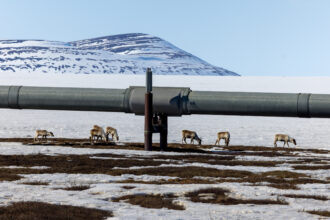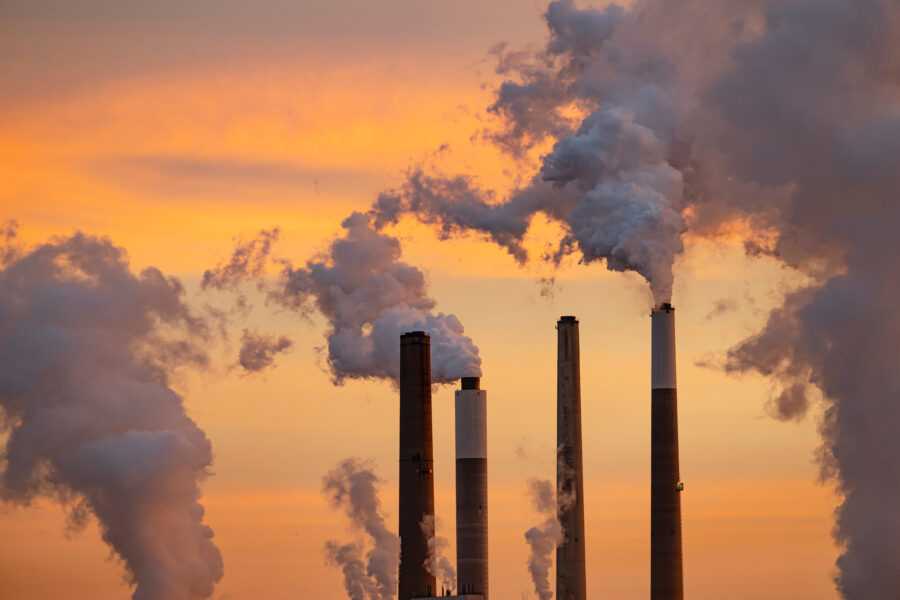Senate Environment and Public Works Chairwoman Barbara Boxer gave opponents of climate change legislation, including some in her own party, a “reality check on global warming” this morning.
Look at the Federal Register – the EPA and other federal agencies are already moving to reduce greenhouse gas emissions, Boxer told a news conference. California will soon have a waiver so it and 17 other states can increase their auto emissions standards. A declaration that greenhouse gases endanger human health and welfare is coming.
“The days of inaction on climate change have ended,” Boxer said. “Action has begun.”
“My message to my colleagues is, we could sit here and let EPA do it, with the president’s support, we could allow the states and cities and the world to do it, or we can move forward. I believe the thing to do is to move forward.”
The target of her message was clear, and it wasn’t the press.
Last week, seven conservative Democrats – Robert Byrd (D-W.Va.), Blanche Lincoln (D-Ark.), Carl Levin (D-Mich.), Evan Bayh (D-Ind.), Mary Landrieu (D-La.), Ben Nelson (D-Neb.) and Bob Casey (D-Pa.) – joined Republicans in fighting to preserve the threat of a Senate filibuster against cap-and-trade legislation. Presidential climate adviser Carol Browner had reportedly been floating the idea of using the budget reconciliation process to get cap-and-trade legislation through the Senate with 51 votes rather the usual 60. Republicans have used that tactic in the past to get tax cuts through and once tried to use it to open the Alaska National Wildlife Refuge to drilling.
Yesterday, four of the six – Lincoln, Bayh, Landrieu and Nelson – launched a Moderate Dems Working Group with 12 other senators to try to influence legislation.
Boxer argues that cap-and-trade revenues belong in the budget document.
“A lot of my colleagues seem to feel that if we don’t act on [climate] legislation then nothing is going to happen,” Boxer said. “If congress does nothing, we’ll be watching EPA do our job. We’ll be watching the states doing our job, because they have the political will to do it.”
“The question is, will Congress continue to play a small part in the solution, as it is now, or a central role? Of course, I hope for a central role.”
The Senate has yet to write its own cap-and-trade bill. There are differences over how greenhouse gas allowances would be doled out – as polluter giveaways, partial giveaways or a 100 percent auction – among other things. Boxer said she had been meeting with officials from the agencies, the White House, and Rep. Henry Waxman, whose House Energy and Commerce Committee expects to take the lead by passing a climate bill before summer.
After the failure last summer of the rushed Lieberman-Warner Climate Security Act, Boxer knows who she needs to talk to in the Senate and which colleagues can be persuaded. The California senator said she has no intention of rushing this bill.
Even if Congress doesn’t act, EPA Administrator Lisa Jackson “should, and I believe will,” issue the finding that greenhouse gases, including carbon dioxide, endanger human health and welfare, Boxer said. "Once there is an endangerment finding, action has to follow."
“What I am saying today is that a cap-and-trade system is the very best plan for avoiding the ravages of climate change, the very best plan for creating new green jobs and moving our nation toward energy independence. Now is not the time to throwing up roadblocks. Now is the time to get on board.”
About This Story
Perhaps you noticed: This story, like all the news we publish, is free to read. That’s because Inside Climate News is a 501c3 nonprofit organization. We do not charge a subscription fee, lock our news behind a paywall, or clutter our website with ads. We make our news on climate and the environment freely available to you and anyone who wants it.
That’s not all. We also share our news for free with scores of other media organizations around the country. Many of them can’t afford to do environmental journalism of their own. We’ve built bureaus from coast to coast to report local stories, collaborate with local newsrooms and co-publish articles so that this vital work is shared as widely as possible.
Two of us launched ICN in 2007. Six years later we earned a Pulitzer Prize for National Reporting, and now we run the oldest and largest dedicated climate newsroom in the nation. We tell the story in all its complexity. We hold polluters accountable. We expose environmental injustice. We debunk misinformation. We scrutinize solutions and inspire action.
Donations from readers like you fund every aspect of what we do. If you don’t already, will you support our ongoing work, our reporting on the biggest crisis facing our planet, and help us reach even more readers in more places?
Please take a moment to make a tax-deductible donation. Every one of them makes a difference.
Thank you,












